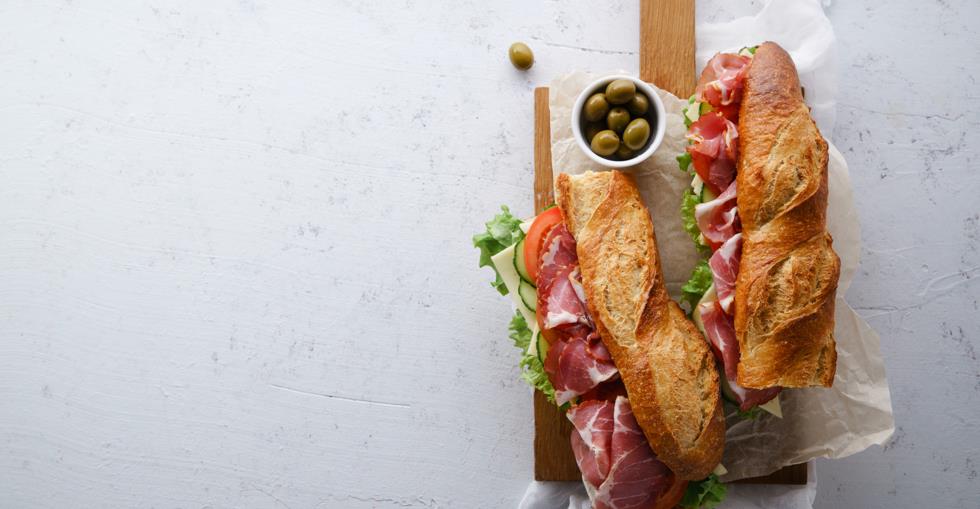If you’re keen to combine your entrepreneurial thirst with a passion for food, a deli business could be the ideal venture for you. Read on to find out more on how to buy a deli and what to look for in an established business.
South Africa is home to many artisan producers; if you have an appreciation for fresh, homegrown, natural produce, buying a deli could be a great investment. You will need patience, expert knowledge, determination and excellent customer service to be successful.
A buyer’s profile
You will not need any specific qualifications; however, you should have experience working at a deli or food business, ideally in a managerial position. You will also need to be confident with preparing and handling food while being compliant with health and safety regulations.
If you want your deli business to be successful, you will have to sacrifice your weekends and be at the store early mornings; this can be difficult if you have a demanding family and personal life. The first two years of the business will be challenging and take up all your time.

If you have experience working in a deli, this is something that should be familiar to you, though. Being familiar with work in a deli will also mean that you have been able to hone other skills.
For example, your great customer service skills and you are interested in getting to know your regulars; shoppers will frequent your store more often if they feel a connection to you and your business. Asking for your customer’s feedback is also a good wat to find out what they like so you know what products to stock.
You should, of course, be passionate about food and sourcing new suppliers who can deliver unique, high-quality produce. Keep yourself well-informed on all the items in your store and spend time training your employees so they can also advise your customers when you’re not around.
What to look for in a business
A lot of delis will also have a secondary business included within the store, such as a bakery, coffee shop or restaurant. If this is a route you decide to take, you will need to hire a manager, or possibly find a business partner, to keep both businesses running successfully and ensure a smooth transition.

Have a clear idea about whether or not this is something you want to do- run a secondary business within your deli- before you start the search for which business to buy. Make sure that you are looking for the exact business that will work for you so that you don’t bite off more than you can chew.
You will also need to make sure that you know what it is that you are buying when you buy a business. Don’t settle on a business before you find out what equipment will be included in the sale and check its condition. Will the seller also be including an inventory of left-over stock? Arrange for a survey to check the condition of the premises and establish whether any repairs or restorations need to be carried out.
Does the seller have a good relationship with his suppliers and customers? If the deli has a bad reputation, factor in how much time and money you will need to spend on improving the business. Buying a failing business could give you the upper hand when negotiating a price but it will take more effort to get it back up to scratch!

Does the deli come with a reliable, fully trained team? This is an invaluable asset; shadow the seller for a few weeks before you take over the business to observe the staff dynamics. Don’t rock the boat, you need to earn the team’s respect; listen to their opinions and issues.
These are things that you should be aware of when you are looking for the right business to buy. Once you have narrowed down your search and you think you have found the one, you will need to go even deeper to make sure it really is! This is where due diligence comes in.
Due diligence
During due diligence, you should clearly identify any risks and determine how to improve the current revenue and sales. Analyse the average daily sales against the deli’s footfall figures; contact a business advisor or your accountant to help you gain a deeper understanding.
If the deli has an additional revenue stream, e.g. coffee shop, carry out a separate due diligence check to compare. It’s important to establish which business is performing better and find a way to further integrate the two; e.g. selling deli sandwiches in the coffee shop.
You should request to study the last three years of business accounts and review sales and gross profits. Focus on the most recent annual and quarterly financial information, including income statements, balance sheets and cash flow statements. Finally, review the quarterly and annual projections for the business and inquire how the owner came to these forecasts.
Other expenses such as marketing will also be necessary to know. Find out how much the current owner spends on advertising; you may want to increase the marketing budget when you first take over the business.
Once you have done a thorough due diligence, you will be in a better position to put in an offer at the value that you think fair for the deli you want to buy.





